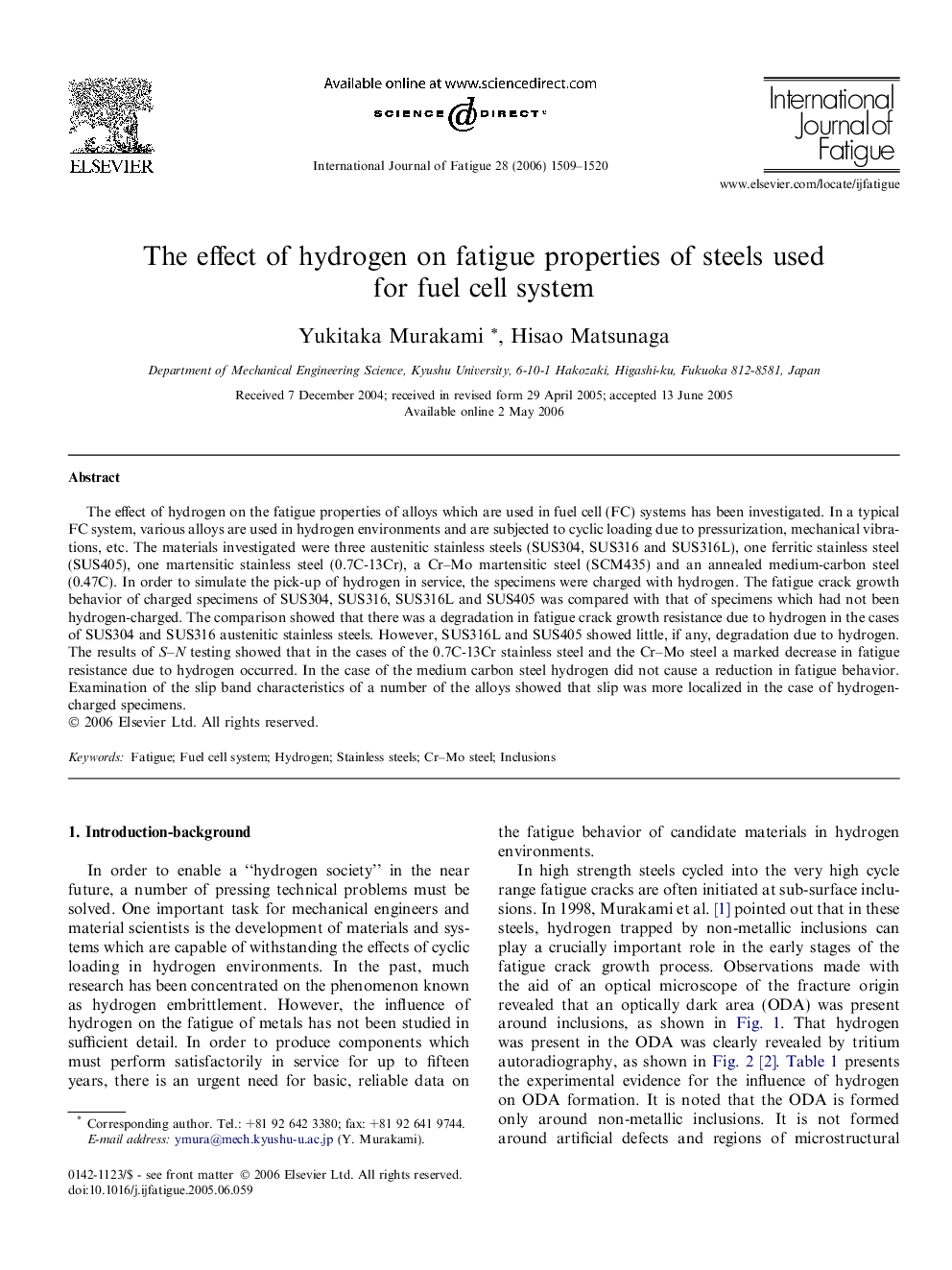| Article ID | Journal | Published Year | Pages | File Type |
|---|---|---|---|---|
| 778648 | International Journal of Fatigue | 2006 | 12 Pages |
The effect of hydrogen on the fatigue properties of alloys which are used in fuel cell (FC) systems has been investigated. In a typical FC system, various alloys are used in hydrogen environments and are subjected to cyclic loading due to pressurization, mechanical vibrations, etc. The materials investigated were three austenitic stainless steels (SUS304, SUS316 and SUS316L), one ferritic stainless steel (SUS405), one martensitic stainless steel (0.7C-13Cr), a Cr–Mo martensitic steel (SCM435) and an annealed medium-carbon steel (0.47C). In order to simulate the pick-up of hydrogen in service, the specimens were charged with hydrogen. The fatigue crack growth behavior of charged specimens of SUS304, SUS316, SUS316L and SUS405 was compared with that of specimens which had not been hydrogen-charged. The comparison showed that there was a degradation in fatigue crack growth resistance due to hydrogen in the cases of SUS304 and SUS316 austenitic stainless steels. However, SUS316L and SUS405 showed little, if any, degradation due to hydrogen. The results of S–N testing showed that in the cases of the 0.7C-13Cr stainless steel and the Cr–Mo steel a marked decrease in fatigue resistance due to hydrogen occurred. In the case of the medium carbon steel hydrogen did not cause a reduction in fatigue behavior. Examination of the slip band characteristics of a number of the alloys showed that slip was more localized in the case of hydrogen-charged specimens.
